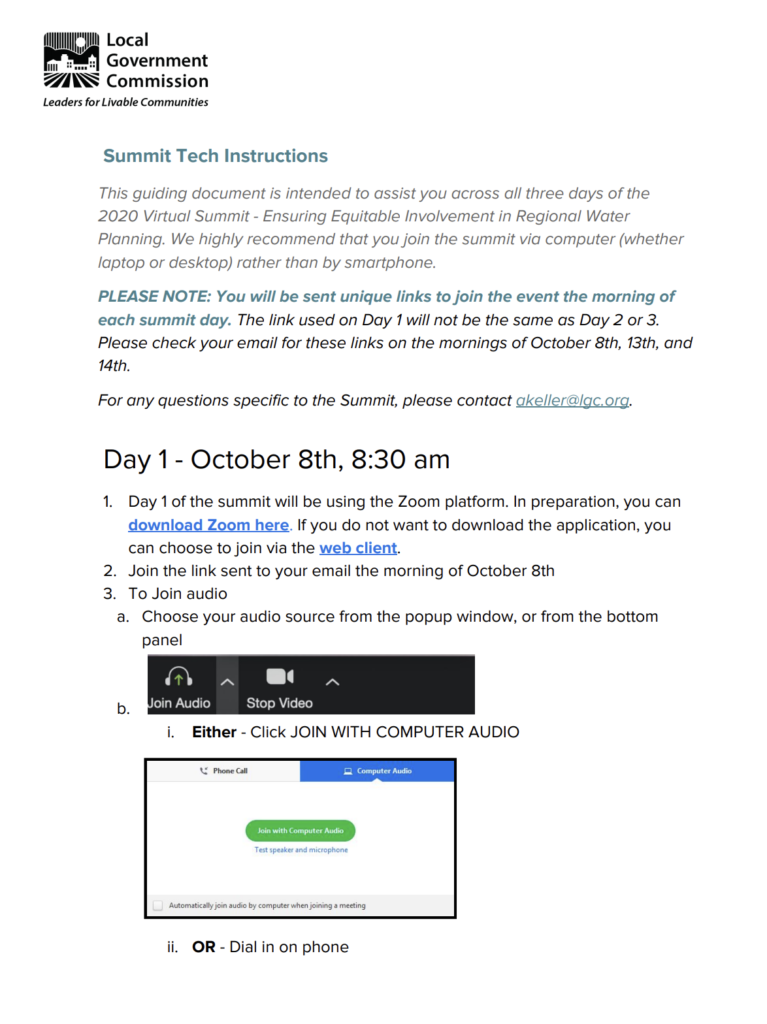
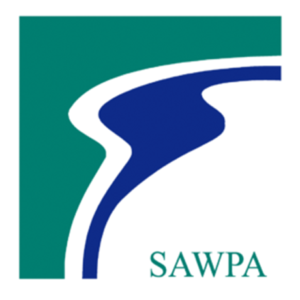
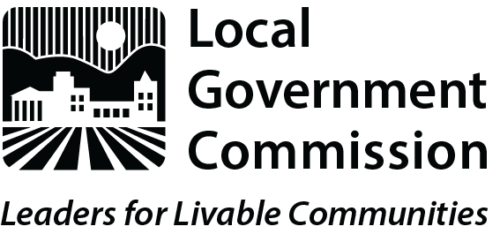

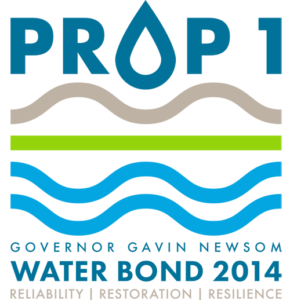
Would you like to review the Summit Sessions? Please click on the buttons below
SUMMIT INFORMATION
Day 1 Agenda
October 8, 2020
SETTING THE STAGE
Day One of the Summit will lay a foundation for the event, highlighting needs uncovered while engaging marginalized groups in Integrated Regional Water Management (IRWM). State leaders will open the day with reflections on IRWM and its connection to the Governor’s Water Resilience Portfolio. Department of Water Resources staff, IRWM practitioners, Tribal representatives, and community leaders will then highlight the strengths and challenges of the DACTI program, and offer their perspectives on priorities for the future of community engagement.
Start Time
Session
Speakers
Location
8:30 AM
Morning Networking & Tech Check
Virtual Main Stage
9:00 AM
1. Summit Welcome
Anecita Agustinez, Department of Water Resources
Rich Haller, Santa Ana Watershed Project Authority
Wade Crowfoot, California Natural Resources Agency
Virtual Main Stage
9:25 AM
2. Opening Plenary
Laurel Firestone, State Water Resources Control Board
Virtual Main Stage
9:45 AM
BREAK
10:00 AM
3. Panel: Lessons Learned from 10+ Years of IRWM Engagement
Moderated by Mike Antos, Stantec
Jennifer Hazard, Rural Community Assistance Corporation
Holly Alpert, Inyo-Mono IRWM Program
Javier Silva, California Indian Environmental Alliance
Virtual Main Stage
What have we learned from 10+ years of dedicated state funding for marginalized community and Tribal engagement? Hear from long-time IRWM experts about their local experiences with Disadvantaged Communities and Tribal Involvement (DACTI) and what challenges remain for the future of regional water management.
10:45 AM
BREAK
11:00 AM
4. Panel: The Future of IRWM in a Changing Climate
Moderated by Mark Stadler, San Diego County Water Agency
Martha Camacho-Rodriguez, Social Eco Education-Los Angeles
Carmel Brown and Anecita Agustinez, Department of Water Resources
Lynn Rodriguez, IRWM Roundtable of Regions
Virtual Main Stage
11:50 AM
BREAK
12:05 PM
5. Small Group Strategizing
Breakout Groups
Cross-regional dialogue on priorities for Disadvantaged Community and Tribal Involvement
In breakout groups, review DWR’s Statewide Needs Assessment findings and strategize how to address gaps in serving underrepresented communities and Tribes. Breakout groups will share their discussion highlights with the full plenary.
1:00 PM
End of Day 1
Day 2 Agenda
October 13, 2020
STRATEGIES FOR ENGAGING
MARGINALIZED COMMUNITIES & TRIBES
On the Summit’s second day, participants will explore strategies to identify and address local needs. Technical assistance providers and regional leaders will share new approaches for evaluating needs, how to move from assessment to project implementation, and what to do in times of crisis, such as during the COVID-19 pandemic, to re-assess local priorities. Day Two will also include time for regional discussions on how to apply new approaches locally, and conclude with a panel of community and Tribal leaders to offer a forward-looking discussion on what engagement of marginalized communities will look like in the future.
Start Time
Session
Speakers
Location
8:30 AM
Morning Networking & Tech Check
Virtual Main Stage
9:00 AM
1. Understanding Localized Needs
Anecita Agustinez, Department of Water Resources
Yana Garcia, California Environmental Protection Agency
Virtual Main Stage
9:25 AM
2. Concurrent Sessions – From Outreach to Implementation
Valerie Olson, Department of Anthropology, University of California, Irvine
Session Rooms
The session will begin with an overview of the Santa Ana watershed’s approach to understanding water-related needs and strengths. Valerie Olsen from UC Irvine will share how the region took an ethnographic approach to uncovering the localized needs of diverse stakeholders, and what was learned through the process.
Participants will select to join one of the following sessions:
2A: Models of Outreach and Engagement
Hear from speakers across multiple regions as they share their approaches to identifying and understanding the needs of marginalized communities and Tribes.
Keta Price, The Hood Planner
Robin Freeman, David R. Brower, Ronald V. Dellums Institute for Sustainable Policy Studies and Action
Jonathan Piltch, Watsonville Wetlands Watch
Azucena Lopez,Watsonville Wetlands Watch
Sonia Sanchez, Self Help Enterprises
2B: Moving from Needs Assessment to Implementation
Moving from Needs Assessment to Implementation – Join speakers from the North Coast, Sacramento, and Mojave as they discuss how their region transitioned the DACTI needs assessments into technical assistance projects supporting Tribes and underserved communities.
Katherine Gledhill, West Coast Watershed
Steve Nevarez, North Coast Resource Partnership
Joanna Lessard, Yuba Water Agency
Lance Eckhart, San Gorgonio Pass Water Agency
2C: Post-Implementation & Reassessing in a Time of Crisis
Post-Implementation & Re-assessing in a Times of Crisis – Listen to local leaders as they share how their communities are responding to the crises of climate change, COVID-19, and the injustices of racial inequity.
Dore A. Bietz, Tuolumne Band of Me-Wuk Indians
Stephen Ceasar, Tree People
Cindy Donis, East Yard Communities for Environmental Justice
AnMarie Mendoza, Sacred Places Institute
Taylor Chang, San Francisco Public Utilities Commission
James Muller, Metropolitan Transportation Commission and the Association of Bay Area Government
Roxana Franco, Nuestra Casa
Julio Garcia, Nuestra Casa
10:35 AM
BREAK
10:50 AM
3. Breakout Groups – Address Needs in your Region: Applying the Strategies and Tools
Region – Facilitator
Central Coast – Jackie McCloud
Colorado River – Lance Eckhart
Los Angeles – Lynn Rodriguez
Mountain Counties – Jodie Monaghan
Lahontan – Holly Alpert
North Coast – Sherri Norris
Sacramento – Marina Deligiannis
San Francisco – Maddie Duda
San Diego – Mark Stadler
San Joaquin River / Tulare-Kern – Angela Islas
Santa Ana – Mark Norton
Statewide – Danielle Dolan
Session Rooms
Discuss with others in your region how the strategies, tools, and resources elevated in the previous session can be applied to your area.
11:45 AM
BREAK
12:00 PM
4. Community and Tribal Leader Panel – How Do We Improve Engagement
Keta Price, The Hood Planner
Chairman Val Lopez, Amah Mutsun Tribal Band
Kanyon CoyoteWoman Sayers-Roods, Association of Ramaytush Ohlone
Izzy Martin, The Sierra Fund
Virtual Main Stage
The day will conclude with a panel of local and Tribal leaders to help prime us for Day 3 – where do we go from here? After discussing lessons learned acrss the state, what can we do to continue advancing engagement within the IRWM program and beyond?
1:00 PM
End of Day 2
Day 3 Agenda
October 14, 2020
WHAT’S NEXT?
ENGAGING BEYOND THE IRWM PROGRAM
The final day of the Summit will translate IRWM engagement efforts to other state programs, and strategize how we can collectively advance marginalized community and Tribal engagement within other water planning efforts. After a brief overview of each program, participants will choose one of multiple optional concurrent sessions. Participants will then have time for smaller group reflection, before coming back together to hear from our Summit Discussant Panel, a group of Tribal and local leaders, on how integrated thinking can transform communities and help us begin to grapple with overcoming injustice.
Start Time
Session
Speakers
Location
9:00 AM
1. Opening Speaker – Looking Ahead: Engaging Beyond IRWM
Anecita Agustinez, Department of Water Resources
Virtual Main Stage
9:15 AM
2. Concurrent Sessions – Integrated Thinking to Advance Marginalized Community Engagement Across State Programs
Concurrent Zoom Sessions
Representatives from 4 state agencies will provide a 2-minute overview of their respective programs, and how they can be integrated with the IRWM DACTI program. Then, each speaker will host simultaneous sessions to provide more detail about the program’s marginalized community and Tribal engagement efforts, and engage in audience discussion. Participants will select one of the four breakout sessions to attend.
2A: Sustainable Groundwater Management Act (SGMA)
Keith Wallace, Department of Water Resources
2B: Safe and Affordable Funding for Equity and Resilience (SAFER)
Andrew Altevogt, Jasmine Oaxaca and Adriana Renteria, State Water Resources Control Board – Office of Public Participation
2C: Watershed Health and the Needs of Unhoused Communities
Ann Gillespie, County of San Luis Obispo
Max Gomberg, State Water Resources Control Board
2D: Water Resilience Portfolio
Nancy Vogel, California Natural Resources Agency
Cindy Messer, Department of Water Resources
10:15 AM
BREAK
10:30 AM
3. Breakout Groups – Translating Collaborative Planning
Breakout Rooms
During the final small group discussion session, attendees will reflect on the entirety of the Summit and strategize how to translate the lessons learned from the DACTI program into local action that holistically empowers marginalized communities and Tribes. As an optional challenge, each group will be asked to summarize for a non-water expert what was discussed during this convening.
11:25 AM
BREAK
11:40 AM
4. Discussant Panel – Reflecting on What We’ve Heard and Where We’re Going
Moderated by Mike Antos, Stantec
Sherri Norris, California Indian Environmental Allianc
Regina Houchin, Ag Center Accounting
Cástulo R. Estrada, Coachella Valley Water District
Virtual Main Stage
The final panel will elevate the wisdom and perspectives of our Summit Discussants, individuals that have listened in all sessions of the Summit for common themes, challenges, and priorities shared by participants. The Discussants will share their reflections on what they heard, and highlight what they see as potential next steps for engaging marginalized communities and Tribes in regional water management.
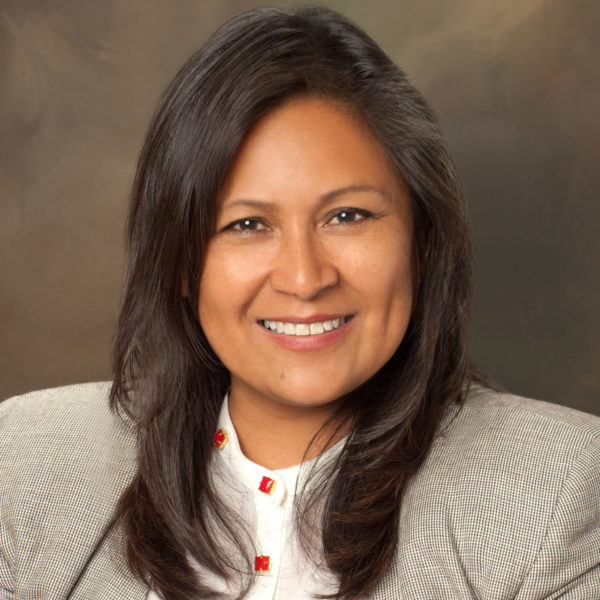
Anecita Agustinez, serves as the Tribal Policy Advisor for the Department of Water Resources. In this role she coordinates communication and outreach with State and federal agencies and facilitates government-to-government consultation between the Department of Water Resources and California’s Native American Tribal Governments. Before joining the Department, she served as the Native American Liaison, and Manager of the Office of Legislative and External Affairs at the Department of Health Care Services. She previously served as the Assistant Director of the Office of Native American Affairs at the California Department of Justice, Office of the Attorney General. Her experience includes developing and conducting training in the areas of Tribal consultation, cultural competency, environmental justice, social justice issues, and legislative advocacy on behalf of California’s Tribal Governments.
Anecita is co-executive producer for On Native Ground, a nationally recognized and award- winning media company and Tribal non-profit corporation. On Native Ground promotes understanding of significant environmental justice issues through youth mentorship projects, documentaries, feature films, original television programming and theatrical productions.
Anecita attended Stanford University and she is an enrolled citizen of the Dine (Navajo) Nation. She is born to the Tó dích’íinii (Bitter Water Clan) and born for the Ilocano Clan.
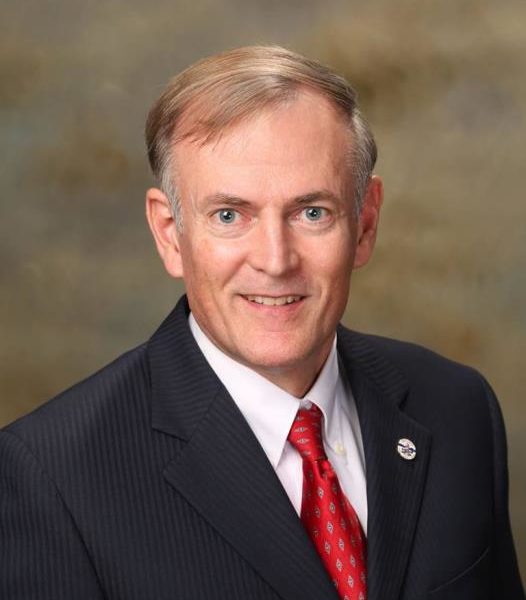
Richard Haller is the General Manager of SAWPA directing watershed collaboration efforts through “roundtable” task forces, conducting integrated regional water management planning and implementing projects of the One Water One Watershed program, and operating the Inland Empire Brine Line, a 90+ mile long pipeline used to dispose of salty wastewater thereby protecting water quality. Mr. Haller has served in a variety of roles at SAWPA since 2001 and was appointed General Manager in 2017. He is a city of Highland resident where he serves on the Planning Commission. Mr. Haller holds a BS and MS in Civil Engineering from Bucknell University and is a retired Lieutenant Colonel from the US Air Force Reserves.
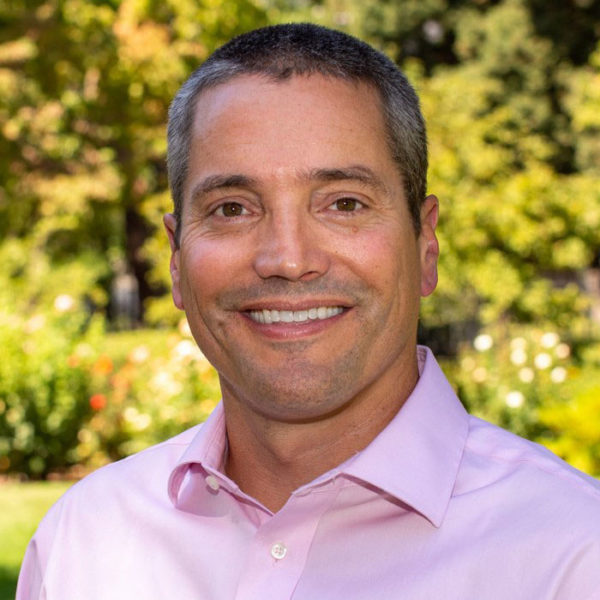
Wade Crowfoot was appointed California Secretary for Natural Resources by Governor Gavin Newsom in January 2019. As Secretary, Crowfoot oversees an agency of 19,000 employees charged with protecting and managing California’s diverse resources. This includes stewarding the state’s forests and natural lands, rivers and waterways, coast and ocean, fish and wildlife, and energy development. As a member of the Governor’s cabinet, he advises the Governor on natural resources and environmental issues.
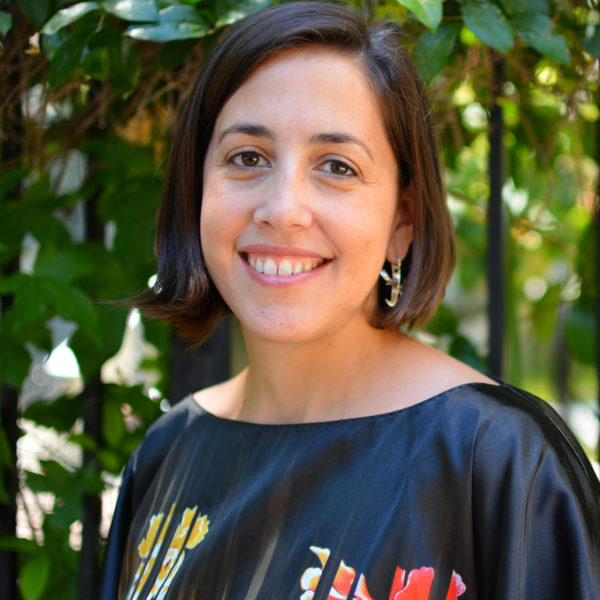
Laurel Firestone was appointed to the State Water Resources Control Board by Governor Gavin Newsom in February 2019. Prior to joining the Board, Laurel co-founded and co-directed, from 2006-19, the Community Water Center (CWC), a statewide non-profit environmental justice organization. Based in California’s Central Valley and Central Coast, the CWC helps disadvantaged communities gain access to safe, clean, and affordable drinking water and build civic engagement and leadership to achieve the human right to water. In 2009, Laurel authored the comprehensive Guide to Community Drinking Water Advocacy and has written a variety of articles relating to safe drinking water and the environment. Laurel graduated with honors from Harvard Law School and holds a B.A. magna cum laude in Environmental Studies from Brown University.
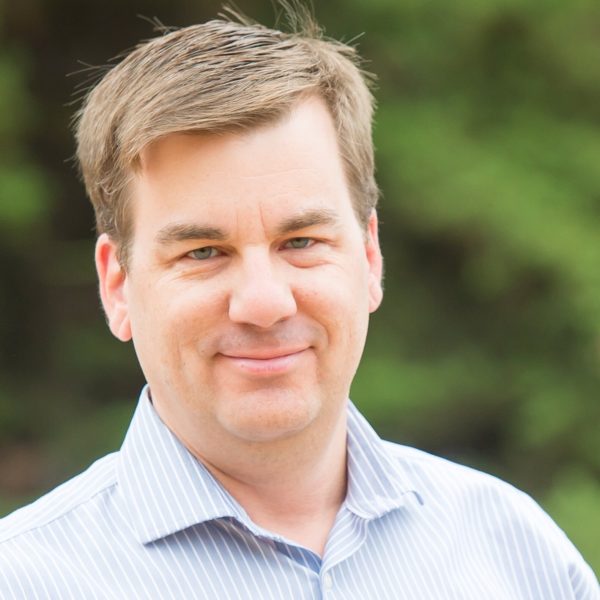
Mike Antos is a watershed social scientist who facilitates partnerships between technical experts and with communities to achieve just and resilient outcomes. He is a fellow of the Robert & Patricia Switzer Foundation, and serves as co-chair of the American Water Resources Association Integrated Water Resources Management Technical Committee. Mike has a PhD in Geography from UCLA, and holds an appointment as visiting scholar at the UC Irvine Department of Anthropology.
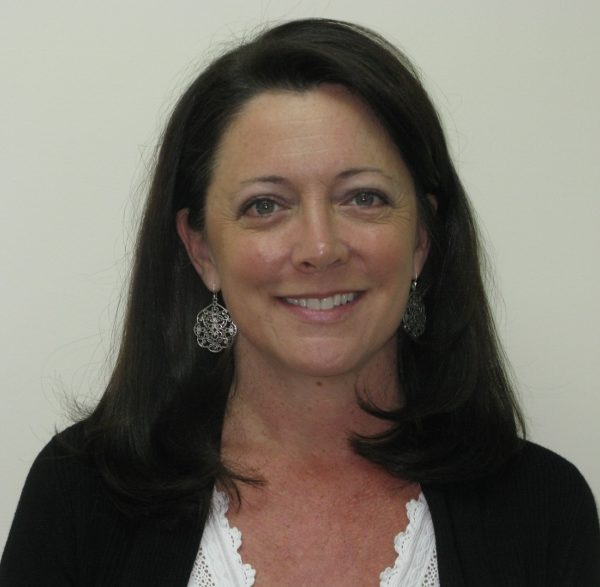
Jennifer Hazard is a regional contracts manager at the Rural Community Assistance Corporation (RCAC), a nonprofit organization that provides training, technical and financial resources, and advocacy for rural communities. Jennifer manages RCAC’s California state contracts portfolio and provides technical assistance to water and wastewater systems seeking funding for infrastructure improvements. For the past ten years Jennifer has served as a San Diego IRWM Regional Advisory Committee Member representing rural, disadvantaged and under-represented communities and has provided project management services to a dozen community grant recipients over the course of three rounds of Prop 84 funding.
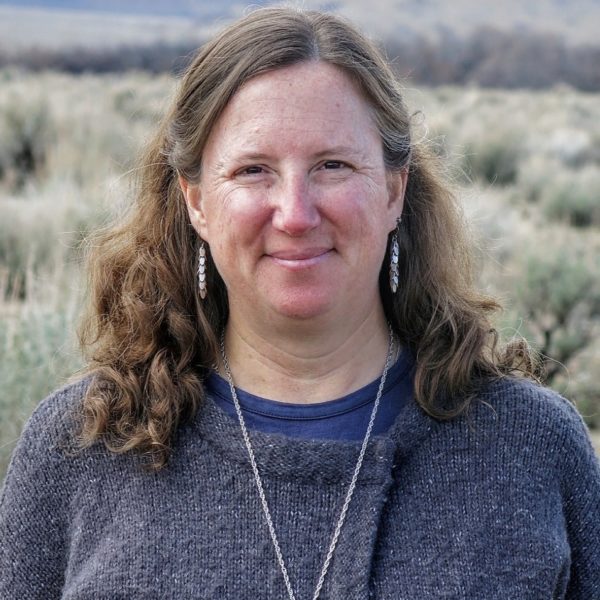
Holly Alpert, Ph.D., lives in Bishop, California, and works on California water issues in two capacities: Director of the Inyo-Mono IRWM Program in eastern California and IRWMP Coordinator for the California Rural Water Association. Within these two roles, Holly has been working with small, rural, and disadvantaged communities for the past 12 years with the goal of building capacity and increasing self-sufficiency with respect to water resources. Holly also works on the intersection of water resources and climate change and served on the California Department of Water Resources’ Climate Change Technical Advisory Group.
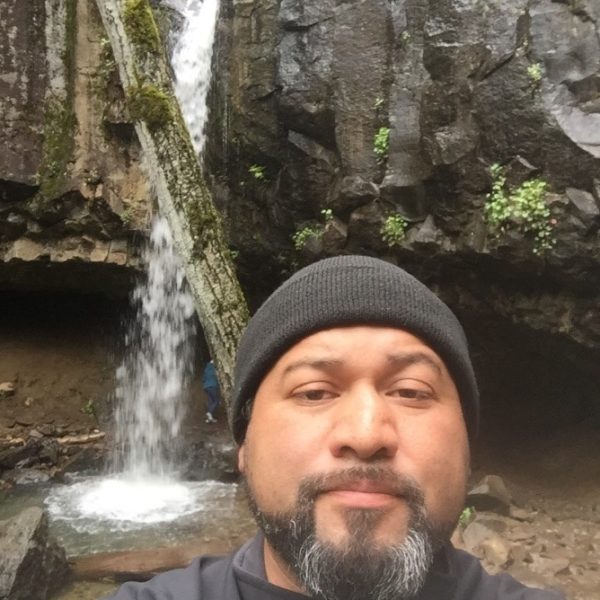
Javier Silva is a Tribal Member with the Sherwood Valley Band of Pomo, a Northern Pomo Tribe located in what is now Mendocino County. He currently resides at the mouth of the Noyo River, where his family has resided since time immemorial. He has worked for his Tribe and several other Tribes for over 25 years in water resources and environmental planning. He is currently working in the North Coast with Tribes on water issues ranging from drinking, wastewater, surface/groundwater management, watershed planning, fish and wildlife protections. Javier promotes utilizing traditional ecological knowledge and is an advocate for sustainable management of the environment. Javier enjoys his time fishing and gathering foods, medicines and materials for family members and elders.
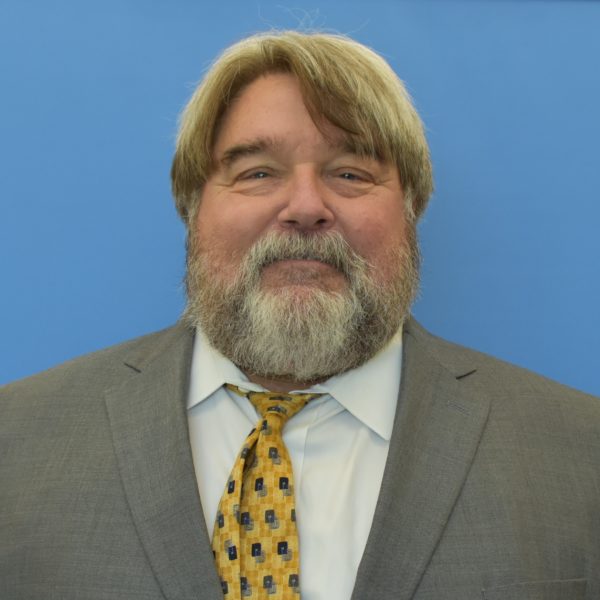
Mark Stadler, a principal water resources specialist at the San Diego County Water Authority, has managed the San Diego Integrated Regional Water Management Program since 2007. He is most proud of how the program has brought together diverse interests to meet the needs of the present without compromising the ability of future generations to achieve their water-related objectives. Mark also serves as co-chair of the statewide IRWM Roundtable of Regions. Before joining the Water Authority in 1989, he worked as a journalist in San Diego. He has a bachelor’s degree in political science from UCSD and a master of public administration degree from San Diego State.
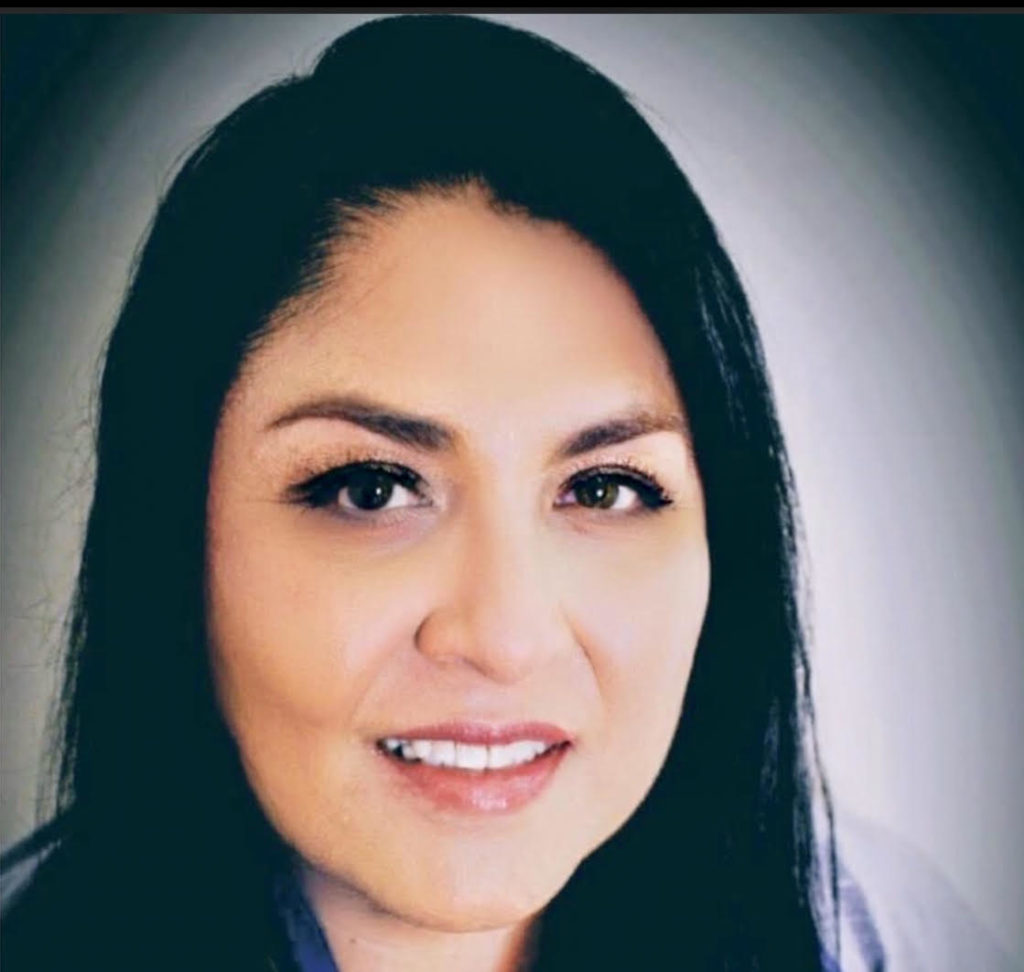
Martha Camacho-Rodriguez is a water advocate for the people who live in low income communities and are receiving poor quality water with high water rates. She speaks with her community to know exactly what their water concerns are. She has fought and will always fight alongside the people to defend their water rights and organize for change.
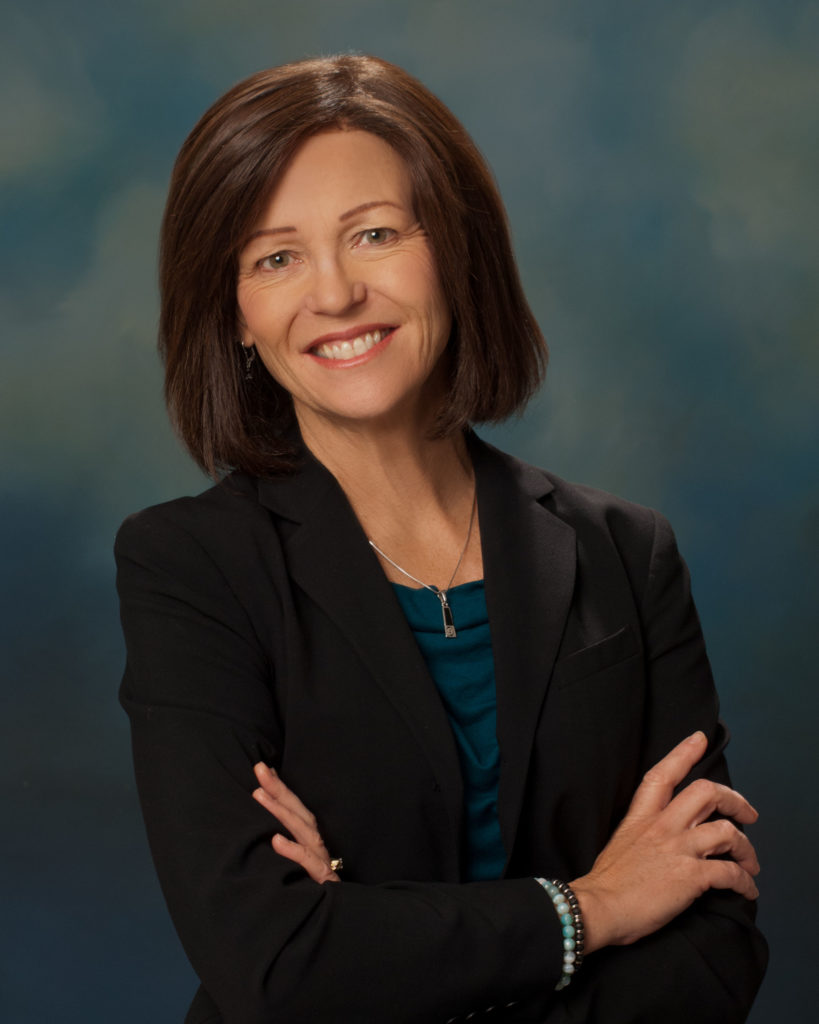
Carmel Brown manages the Financial Assistance Branch with the Division Regional Assistance at the CA Department of Water Resources (DWR). Her multi-disciplinary team administers and delivers millions of dollars in grants made possible by voter-approved bonds. The funding targets multi-benefit projects planned and conducted through integrated, collaborative, watershed-based processes, with a special emphasis on meeting the needs of traditionally underrepresented vulnerable communities and Tribes. The funds enable local and regional communities and water organizations throughout CA to manage water resources more sustainably and become more resilient to the impacts of climate change, including drought, floods, wildfires, sea level rise and ecosystem degradation. Prior to joining the State in 2013, Carmel worked for nearly 30 years in the private environmental consulting world. She received her Bachelor of Science degree in Civil Engineering from California State Polytechnic University, San Luis Obispo and is a registered Civil Engineer in California.
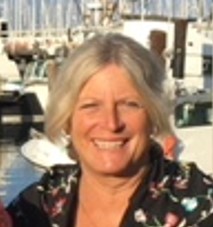
Lynn Rodriguez has been a water resource management professional since 1981 and currently manages the Watersheds Coalition of Ventura County (WCVC) Integrated Regional Water Management (IRWM) Program. In collaboration with stakeholders in the region, she prepares and oversees IRWM plan development and implementation and manages the ongoing stakeholder engagement process. She also serves as co-chair of both the statewide IRWM Roundtable of Regions and the LA-Ventura Area Disadvantaged Community Involvement Task Force.
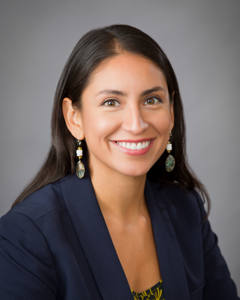
Yana Garcia was appointed by Governor Gavin Newsom in August 2019 to serve as Deputy Secretary for Environmental Justice, Tribal Affairs and Border Relations at the California Environmental Protection Agency (CalEPA). Prior to her most recent appointment, she served two years at CalEPA as Assistant Secretary for Environmental Justice and Tribal Affairs. Yana holds a degree in politics from the University of California, Santa Cruz and a law degree from Northeastern University School of Law.
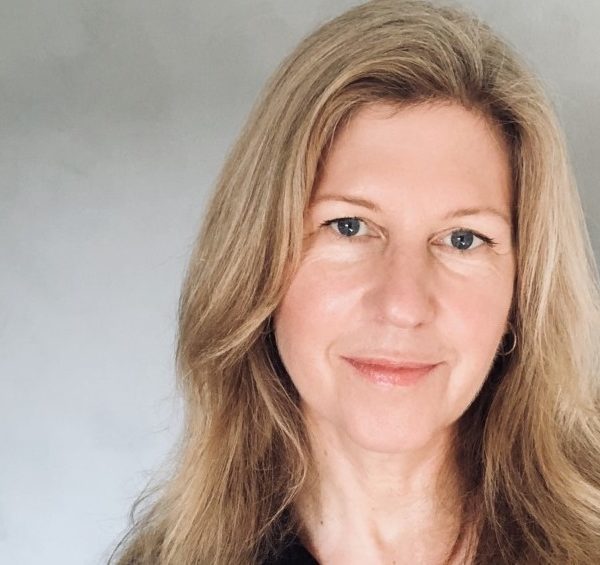
Valerie Olson is an environmental anthropologist at UC Irvine who specializes in studying how people govern large environmental spaces that cross political boundaries and are difficult to directly access, like the underground, deep sea, and outer space. Her current work focuses on the political ecology of water systems in Southern California.
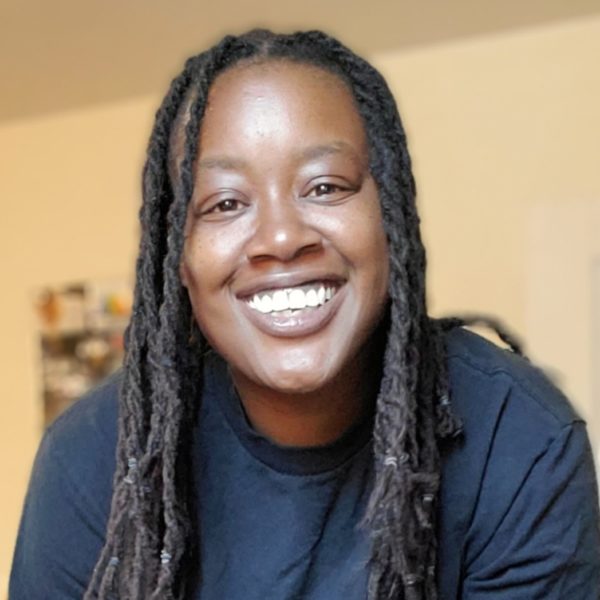
Marquita “Keta” Price aka The Hood Planner is a third generation East Oakland native. Keta works full-time as the Director of Urban and Regional Planning for the East Oakland Collective and part-time as an independent contractor for the Brower-Dellums Institute for Sustainable Policy Studies and Action. Keta’s formal passion for urbanism came about during her recreational research on how gentrification has impacted low-income Black “Hoods” across the nation. As a contractor for the institute Keta provides services in social media, photography/videography, strategic planning, and community engagement. Keta has an Associates of Mathematics and Natural Science from Merritt College, Home of the Black Panthers.
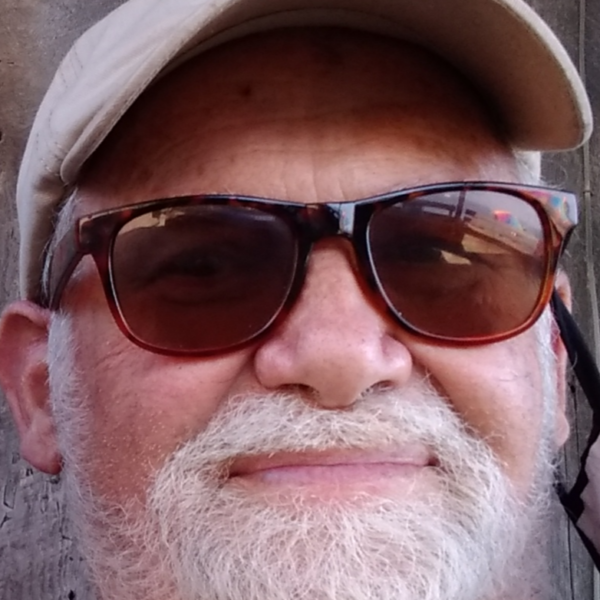
Robin Freeman, founding Director of the 50 year old Institute (David R. Brower, Ronald V. Dellums Institute for Sustainable Policy Studies), has served on and with local government and NGO Boards and Commissions, including the Environmental Justice Coalition for Water, the California Chapter of the Society for Ecological Restoration and Architects, Designers and Planners for Social Responsibility. He is Chair, emeritus, of Environmental Management and Technology at Merritt College in Oakland.
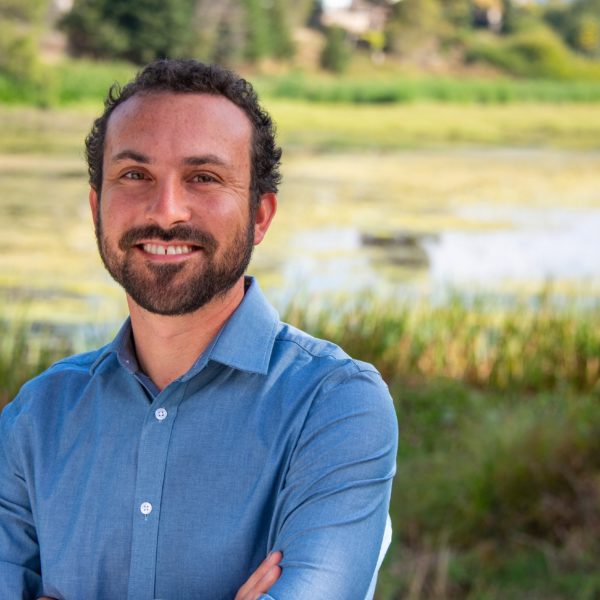
Jonathan Pilch is the Executive Director of Watsonville Wetlands Watch, a non-profit organization that works to provide environmental restoration, natural resource management and planning, environmental education and community engagement in Watsonville and the greater Pajaro Valley. Jonathan holds a degree in Geography from the University of California Berkeley and worked for Watsonville Wetlands Watch for the past 15 years. Over this time, his work has emphasized effective community engagement strategies and collaborative planning with non-traditional partners to achieve the best outcomes for environmental conservation and community benefits.
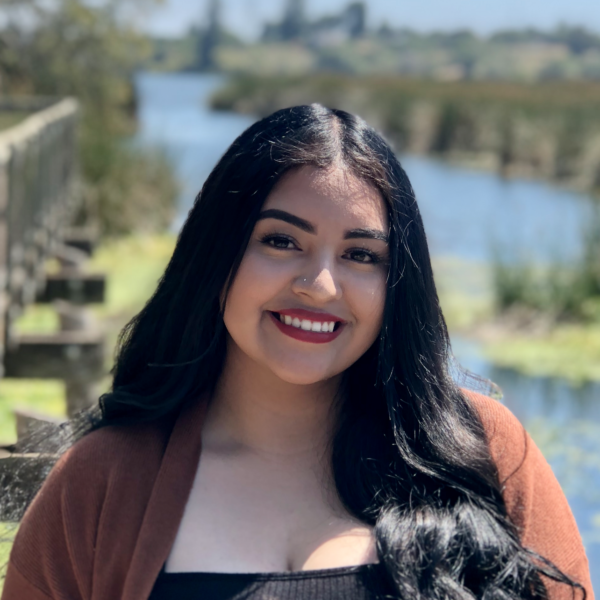
Azucena Lopez is currently a freshman at UC Santa Cruz. As a Pajaro Valley High School student in Watsonville, she exceled in and graduated from the Green Careers Institute and Wetland Stewards Program, two environmental education programs run by the non-profit organization Watsonville Wetlands Watch . Her current area of study is the intersection of environmental science and human biology, a subject she is truly inspired by as she finds immense value in discovering interactions between humans and the environment. Her diverse experiences have shaped her professional ambitions of attaining a career in the medical field.
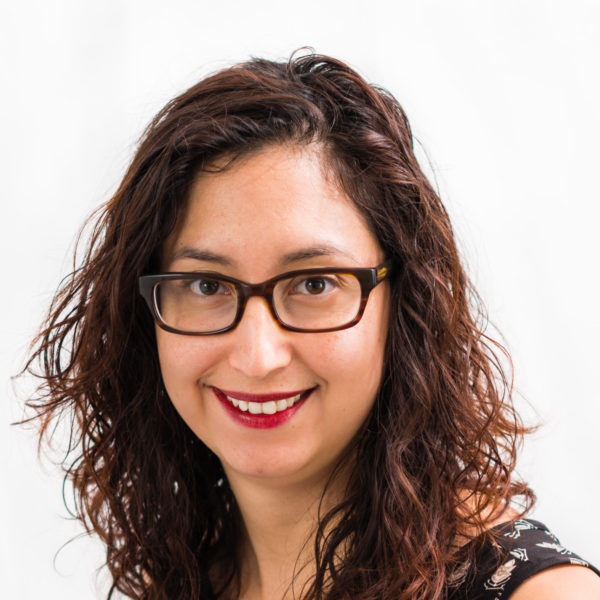
Sonia Sanchez is a community outreach and public relations specialist. She is skilled in achieving impact by developing and executing successful communications campaigns through engagement, media relations and storytelling via traditional and new media. In her current role as Senior Community Development Specialist with Self-Help Enterprises, Sonia leverages her integrated communications and event planning background to organize the logistics for community meetings, outreach to disadvantaged and severely communities and Tribes, developing press materials and press outreach, meeting facilitation, and providing translation support. Sonia graduated from the University of California, Los Angeles (UCLA) with a Bachelor of Arts degree in Geography/Environmental Science and a Minor in Public Health.
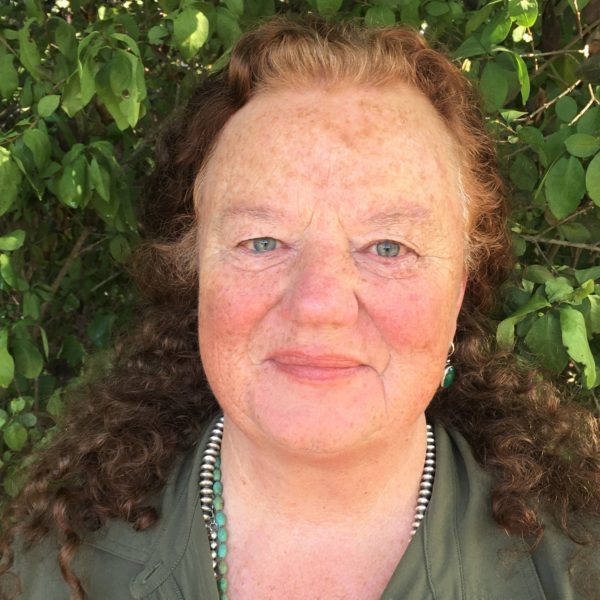
Katherine Gledhill has over thirty years of experience with multi-benefit integrated regional planning, environmental education programs, grant development, and GIS analyses. She is a principal of West Coast Watershed (WCW), a small, dynamic consultancy focused on science-based watershed assessment and planning. Since the inception of the North Coast Resource Partnership (NCRP), WCW has provided a suite of coordination, management, outreach and technical services pertaining to ongoing planning, funding, project implementation and community relations for the NCRP.
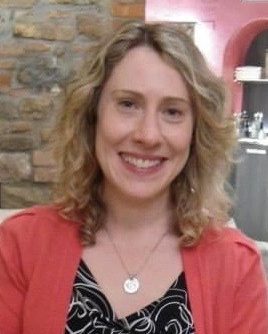
Joanna Lessard is an aquatic ecologist with over 20 years of aquatic research and consulting experience. She started working with the IRWM program in 2014 to support the Yuba IRWM’s project development and stakeholder engagement activities. She also supported the Yuba Water Agency’s GSA outreach program including development of their Groundwater Sustainability Committee and the development of a collaborative GSP. JoAnna worked with Katie Burdick and representatives of the SRFA IRWMS to coordinate the SRFA-DACI Program Application and has been the Technical Lead and Project Manager since the Grant was executed, with Yuba Water acting as Fiscal Agent. Recently, in July 2020, she joined the Yuba Water Agency as a Project Manager and continues to support their IRWM, GSA/GSP, and DACI Programs from within the Agency.
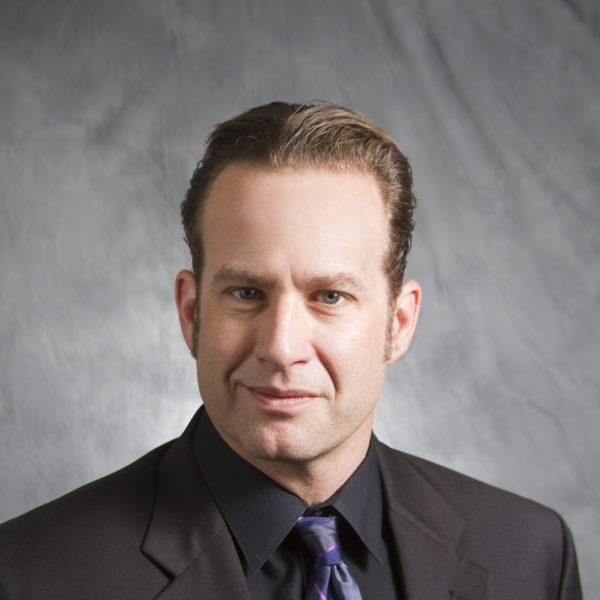
Lance Eckhart is the General Manager for the San Gorgonio Pass Water Agency, a State Water Contractor. Prior to his employment at SGPWA, he was employed for 18 years at the Mojave Water Agency (State Water Contractor) as the Director of Basin Management and Resource Planning. At Mojave, Lance acted as the program coordinator for the Region’s Integrated Regional Water Management Plan (IRWM). Mr. Eckhart received his Bachelor of Science degree in Geology and a Master of Science degree in Environmental Science from California State University, Fullerton. He is a licensed Professional Geologist and Certified Hydrogeologist in the State of California.
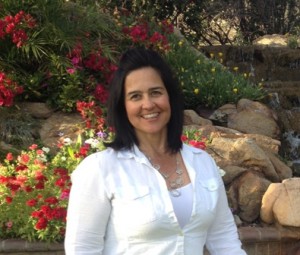
Dore Bietz (Northern and Southern Me-Wuk) resides on the Tuolumne Rancheria in Central California. Ms. Bietz has worked for Tribes specializing in realty, land use, environmental and natural resources protection and emergency management for 25 years. Dore understands the complexities of Tribal governments and the need to foster better communication between Tribes and outside agencies. Ms. Bietz currently is involved in every aspect of community development, environmental and natural resources protection, emergency management and preparedness.

Stephen Salazar Ceasar, Sr. Manager of Community Organizing, leads TreePeople’s team of community organizers and guides overall engagement and organizing strategy. With an advanced degree in social work and extensive work in journalism and strategic communications, Stephen leads a team that works to engage, organize and advocate for climate resiliency in Los Angeles’ most economically and environmentally stressed communities. Stephen previously worked as a reporter for the Los Angeles Times, The New York Times and the Arizona Daily Star in Tucson, Arizona. He’s originally from Calexico, California.
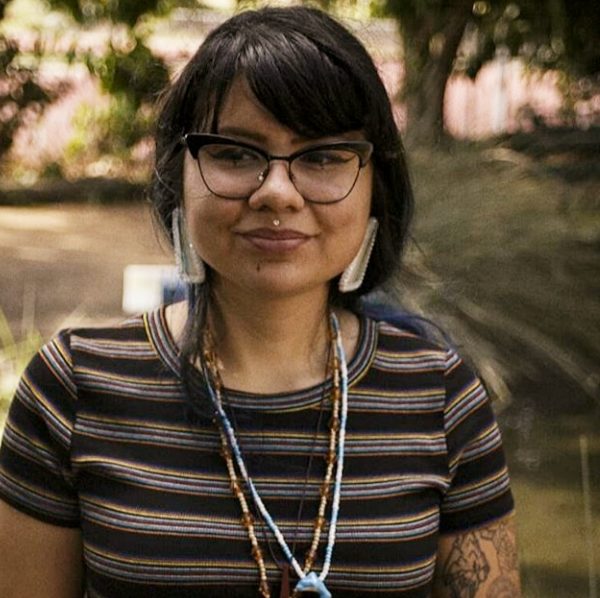
AnMarie R. Mendoza was born and raised in the San Gabriel Valley and identifies with both the original people (Gabrieleno-Tongva) and the distinctive working-class communities of the area. AnMarie has a Bachelors degree in Political Science and a Masters in American Indian Studies from UCLA. Generations of her family have witnessed, endured and contributed to the molding of Los Angeles (Occupied Tongva territory) and it is for this reason she continues her academic study in Urban Planning. She is creator and director of the “Aqueduct Between Us,” a docuseries about water in Los Angeles from an indigenous perspective and is also Director of Indigenous Water Programs for Sacred Places Institute for Indigenous Peoples.
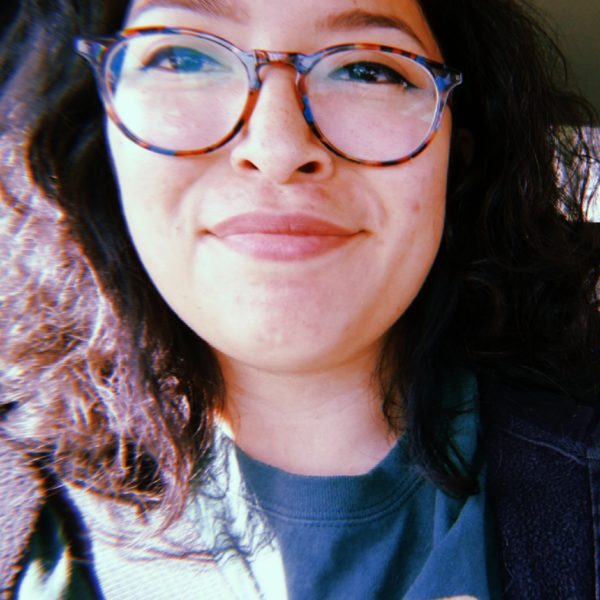
Cindy Donis grew up loving her community in Maywood, CA. As a daughter of Guatemalan immigrants, she values her roots, history and purpose and sees her own growth as an offering to her family and community. After, graduating with a BA in Chicana/o Studies and Gender & Feminist Studies from Pitzer College (’13), she spent 3 years organizing with the Labor/Community Strategy Center, challenging the mass criminalization of black and brown youth and militarization of neighborhoods of color. She built her skills and was able to come back to South East LA when she joined the East Yard team in 2017. In her current role as a Youth Organizer, she facilitates spaces for youth to build their knowledge, voice and power to fight against environmental racism.
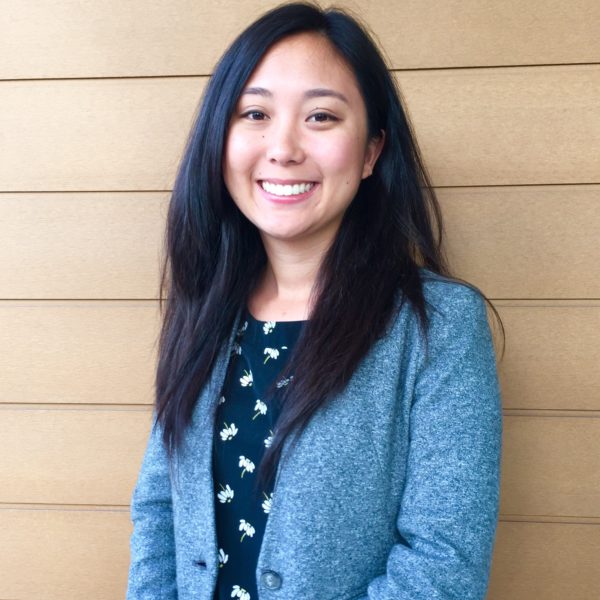
Taylor Chang is the water resources analyst, San Francisco Public Utilities Commission. Taylor Chang manages the Onsite Water Reuse Program, which allows buildings in SF to treat and reuse water onsite for non-potable applications. Taylor graduated from UC Berkeley in Environmental Studies, and has a Masters in Public Administration from the University of San Francisco.
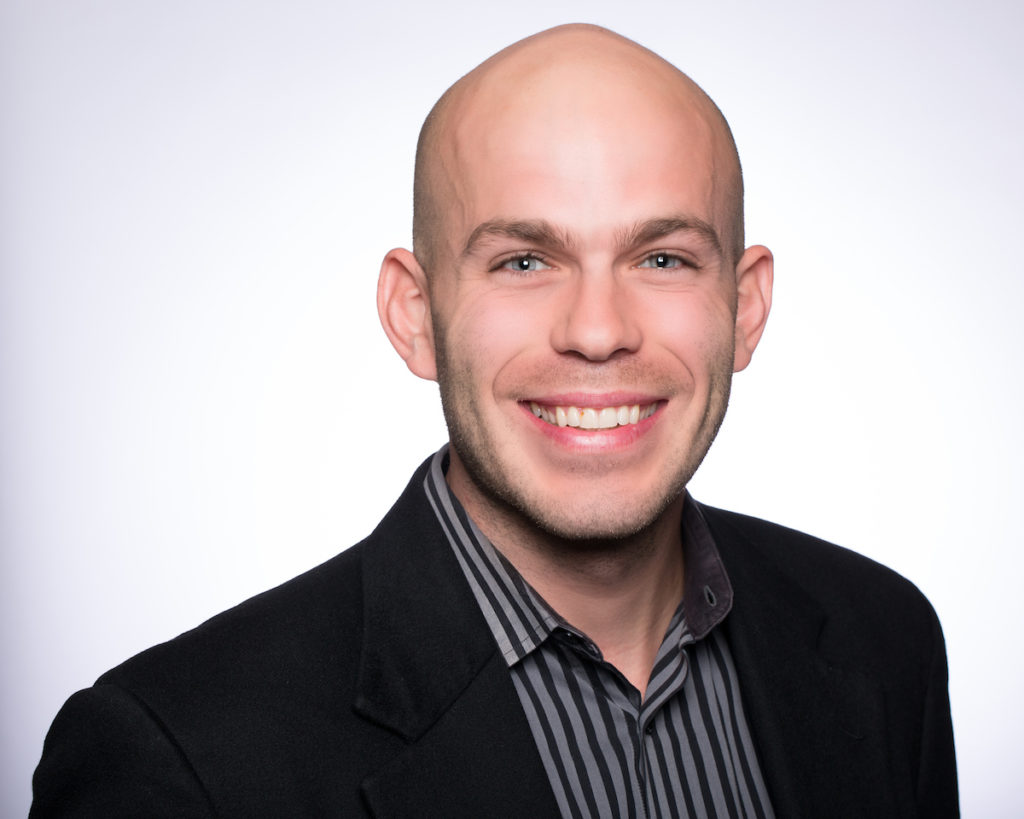
James Muller, Principal Environmental Planner, Metropolitan Transportation Commission and the Association of Bay Area Governments, manages the San Francisco Bay Region IRWM Grant Program at ABAG, funded by the California Department of Water Resources, and works to support the implementation of the San Francisco Estuary Partnership’s Estuary Blueprint. James has a Bachelor’s of Science in Biology from Radford University and a Master’s of Science in Environmental Management from the University of San Francisco., Principal Environmental Planner, Metropolitan Transportation Commission and the Association of Bay Area Governments, manages the San Francisco Bay Region IRWM Grant Program at ABAG, funded by the California Department of Water Resources, and works to support the implementation of the San Francisco Estuary Partnership’s Estuary Blueprint. James has a Bachelor’s of Science in Biology from Radford University and a Master’s of Science in Environmental Management from the University of San Francisco.
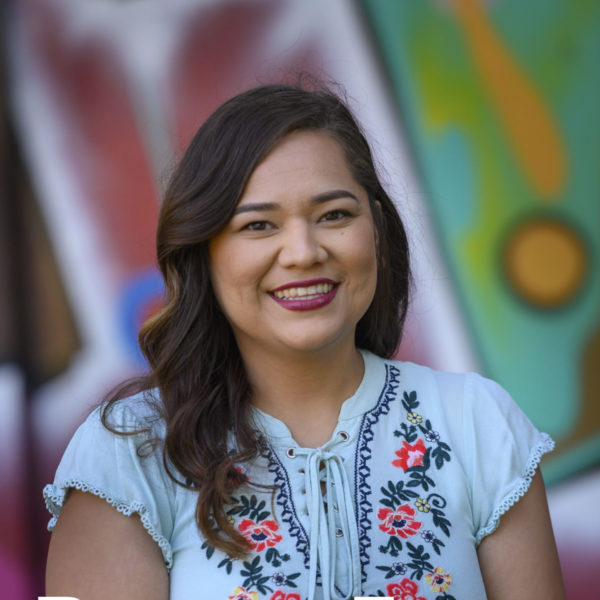
Roxana Franco, Programs Manager at Nuestra Casa, wants to change the “business as usual” mindset the community has about environmental quality. Using her intuition and her organizational gifts, Roxana delivers on this promise. She trains community members to become environmental justice leaders in their own neighborhoods.
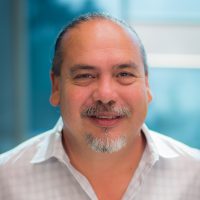
Julio Garcia, Senior Program Director at Nuestra Casa, is among a handful of other leaders building the environmental justice movement for the Latino community in East Palo Alto. A largely Latino, Spanish-speaking community of about 30,000, East Palo Alto bears a heavy environmental hazard burden compared to surrounding high wealth communities

Valentin Lopez is the Chairman of the Amah Mutsun Tribal Band, one of three historic Tribes that are recognized as Ohlone. The Amah Mutsun are comprised of the indigenous descendants forcibly taken to Missions San Juan Bautista and Santa Cruz. Chairman Lopez is also the President of the Amah Mutsun Land Trust which was established in 2012.. He is a Native American Advisor to the University of California, Office of the President on issues related to repatriation. He is also a Native American Adviser to the National Alliance on Mental Illness (NAMI) and the Phoebe Hearst Museum of Anthropology. The Amah Mutsun are currently working to restore their traditional indigenous knowledge regarding land stewardship so they can return to the path of their ancestors. Consequently, the Amah Mutsun are very active in conservation and protection efforts within their traditional Tribal territory. Chairman Lopez is working to restore the Mutsun Language and is a traditional Mutsun singer and dancer.
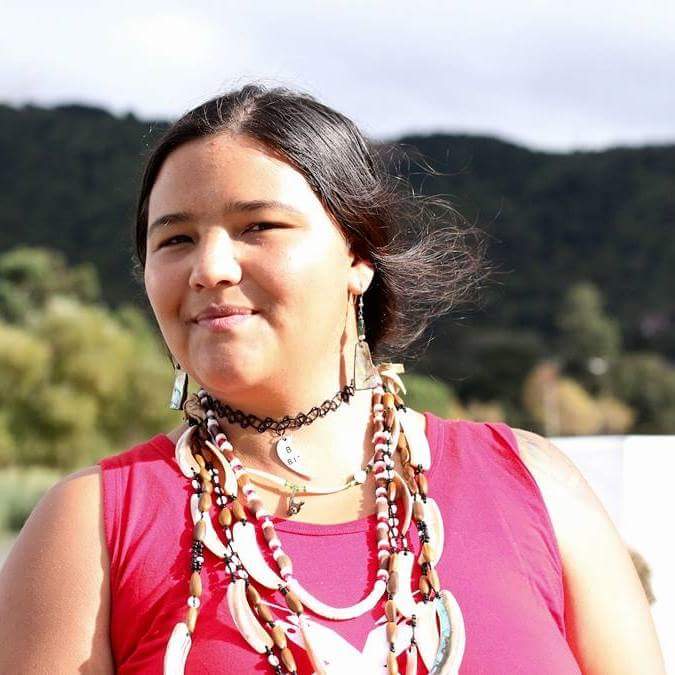
Kanyon “Coyote Woman” (Hahashkani) Sayers-Roods is a Mutsun-Ohlone and Chumash Two Spirit Indigenous relative. She is proud of her heritage and her native name and is an active leader in the Native Community. Kanyon is the Co-founder & CEO of Kanyon Konsulting LLC, where she strives to bridge the gap between indigenous and contemporary value systems. Her goal is to make a difference in the lives of others by sharing her life experiences and knowledge about California Native Americans focusing on global education with emphasis on promoting understanding of the relationship between humanity and the natural world.
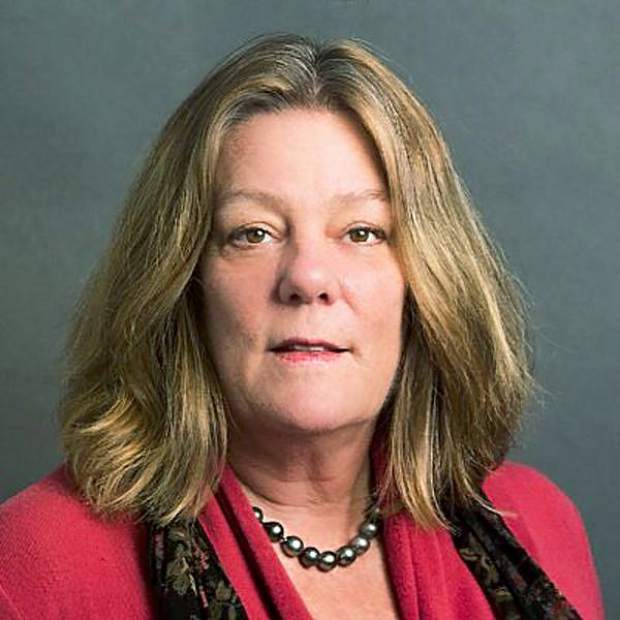
Elizabeth “Izzy” Martin, CEO of The Sierra Fund, is an organizer and advocate with forty years of experience working in rural communities to promote economic and environmental justice. While serving as Nevada County Supervisor Izzy led the fight in the legislature to put the Yuba River into the state’s wild and scenic river system, spearheaded the effort to clean up an abandoned mine in her district, and began a successful five-year campaign to establish the Sierra Nevada Conservancy. Izzy conceived of and directs The Sierra Fund’s Headwaters Restoration Program, aimed at restoring the region from the environmental, health and cultural devastation caused by the 19th century California gold rush. Her extraordinary accomplishments have been recognized with a James Irvine Foundation Leadership Award and a California Wellness Leader Sabbatical Award.
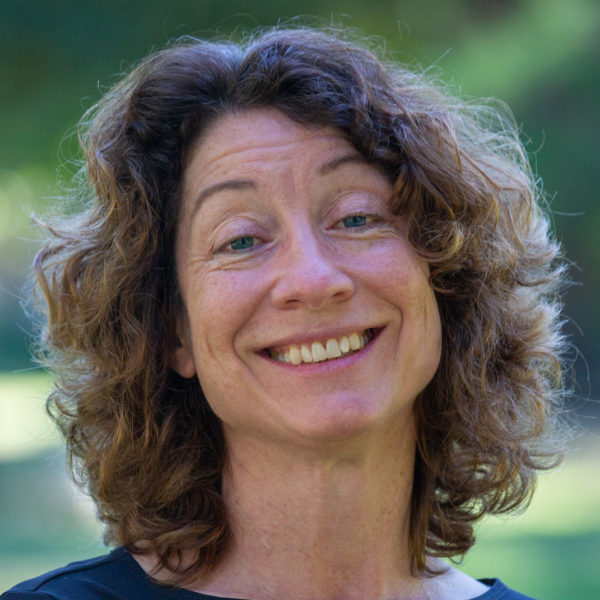
Nancy Vogel joined the Natural Resources Agency as director of the Governor’s Water Portfolio Program in May 2019. Her previous jobs include director of communications at Resources Legacy Fund, deputy secretary for communications at the California Natural Resources Agency, assistant director for communications at the Department of Water Resources, and a principal consultant for the Senate Office of Oversight and Outcomes. Nancy was a staff writer for the Los Angeles Times from 2000 to 2008 and for The Sacramento Bee from 1991 to 2000.
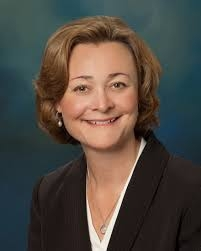
Cindy Messer was appointed Chief Deputy Director in February 2017. Prior to her appointment, she served as a subject matter expert and policy advisor to the Director and others on a broad range of issues impacting statewide water management. She was the deputy director of the Planning, Performance, and Technology Division at the Delta Stewardship Council from 2012 until her appointment with DWR. As deputy director, she coordinated the preparation and implementation of the Delta Plan. Prior to this position, she served as the Assistant Executive Officer for the Sacramento-San Joaquin Delta Conservancy where she provided oversight for development of the Delta Conservancy’s Interim Strategic Plan. She also worked for more than 10 years in various technical and managerial roles in DWR’s Division of Environmental Services. She is a graduate of the University of California, Davis, with a Bachelor of Arts degree in environmental policy analysis and planning. She also earned a Master of Science degree in conservation biology from California State University, Sacramento.
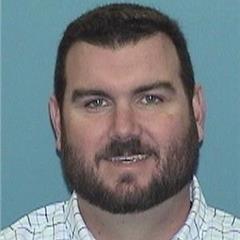
Keith Wallace is a Supervising Engineer for the California Department of Water Resources (DWR) and the Chief of the Outreach and Engagement (O&E) Section in the Sustainable Groundwater Management Office (SGMO). Keith has more than 19 years of experience in water resources engineering, planning, and management. He has worked for DWR since 2010 and prior to joining SGMO in January 2018, he spent six years as the Project Manager for DWR’s Integrated Regional Water Management’s Implementation Grant Program. Keith has a B.S. in Environmental Engineering from Cal Poly, San Luis Obispo.
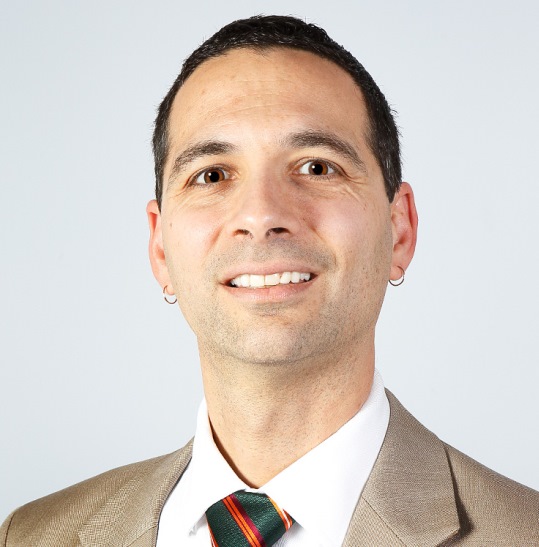
Andrew Altevogt is Assistant Deputy Director for the Division of Drinking Water (DDW) at the State Water Board. Dr. Altevogt oversees the SAFER and Quality Assurances sections of DDW. Prior to joining the DDW, he served as the Assistant Executive Officer at the Central Valley Water Board for 7 years. Dr. Altevogt started his career with the State of California, working on climate change policy in the CalEPA Office of the Secretary. He is a California Registered Civil Engineer, holding undergraduate and Master’s degrees in Environmental Engineering from MIT, and a Ph.D in Hydrologic Sciences from UC Davis.
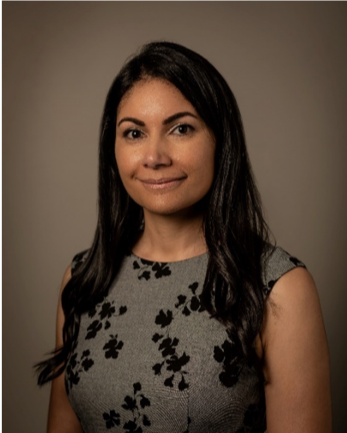
Jasmine Oaxaca, Supervising Water Resource Control Engineer of the State Water Resources Control Board, has a bachelor’s and master’s degree in Civil and Environmental Engineering from UC Berkeley. She worked as an environmental consultant for 10 years at MWH (now Stantec), before joining the Water Boards in 2015. At the Water Boards, Jasmine worked in the Office of Enforcement for 4 years and joined the Division of Financial Assistance in late 2019. She is currently the section chief over the new Safe and Affordable Drinking Water section in DFA, which manages funding agreements related to SB 200.
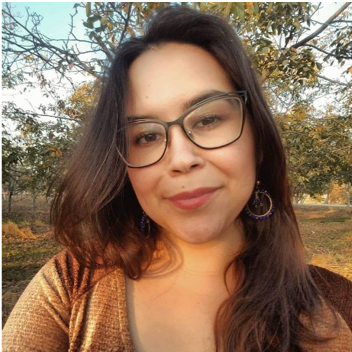
Adriana Renteria (pronouns: she/they) is the Director of the Office of Public Participation at the California State Water Resources Control Board, which assists staff in designing and implementing effective stakeholder involvement processes to ensure all stakeholders can meaningfully participate in Water Board decisions. Adriana is also the State Water Board’s Tribal Liaison and in this capacity they facilitate communication and engagement between the Water Boards and Tribal governments. Previously, Adriana was Regional Water Manager at the Community Water Center and Coordinator for the People of Color Sustainability Collective at the UC Santa Cruz American Indian Resource Center. They have years of experience improving community involvement in water quality and water rights governance including advocating for increased access to clean water through implementation of the Sustainable Groundwater Management Act. They have a BS in Environmental Studies and Economics.
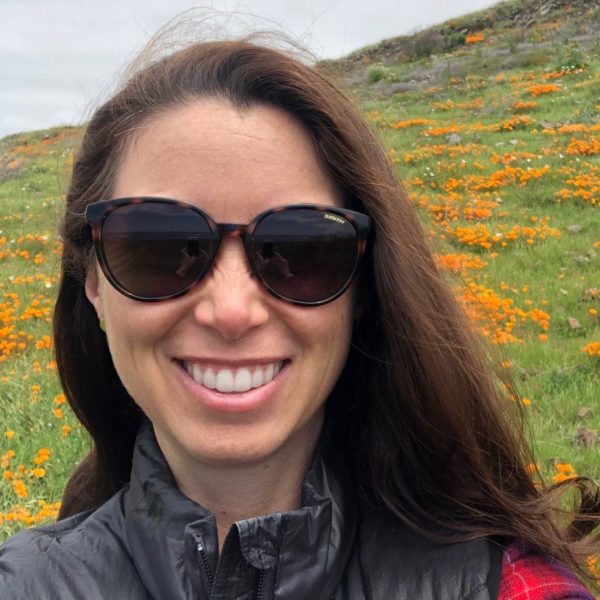
Ann Gillespie is the Stormwater Program Coordinator for San Luis Obispo County. Her career has focused on surface water quality and included work in the non-profit, private and public sectors. Since joining the County of San Luis Obispo in 2016 she has worked to strengthen local and regional collaborative partnerships to achieve the goals of the Phase II municipal stormwater permit. Having spent an uncountable number of hours ankle to waist deep in waterways across the Central Coast, she remains deeply committed to protecting and restoring fishable, swimmable waterways.
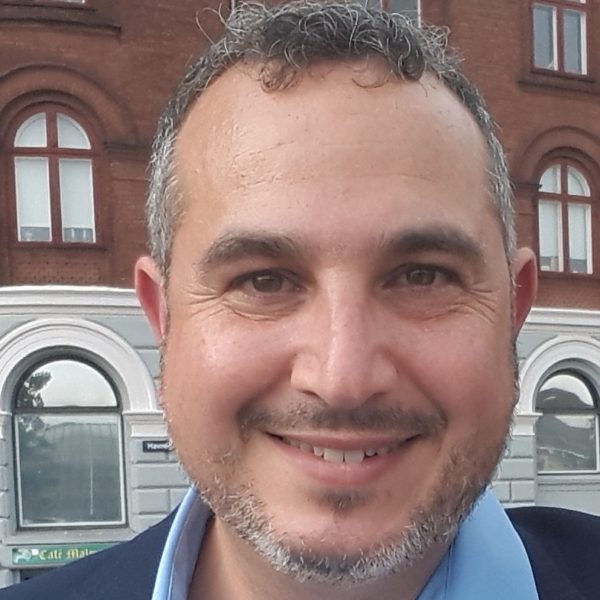
Max Gomberg is the water conservation and climate change manager at the State Water Resources Control Board (Water Board) where he leads development of water conservation, access, affordability, and climate change policies across California. Under his leadership, the Water Board developed a statewide plan for low-income water rate assistance, adopted a comprehensive climate change mitigation and adaptation policy, and implemented regulations to reduce urban water use during California’s severe drought. Mr. Gomberg currently leads an initiative to mitigate the impacts of COVID-19 on water systems and customers.
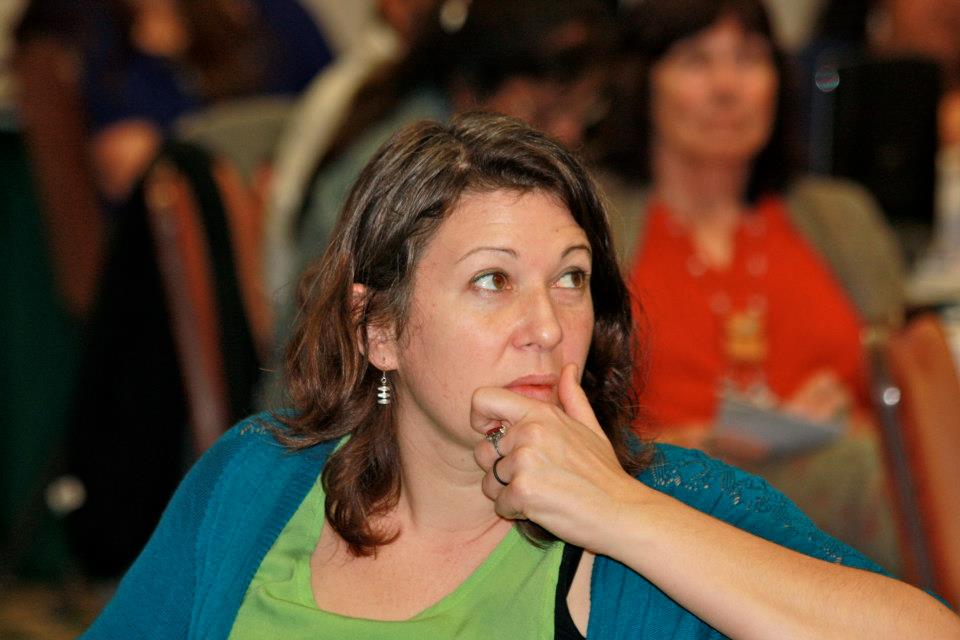
Sherri Norris has been doing advocacy work for over 25 years and received her Bachelor’s degree in Environmental Health Policy and International Relation Policy from San Francisco State University. She has eleven years of experience working as a Tribal health and environmental advocate at the local level and at international fora. She is the primary contact for CIEA’s Tribal Engagement responsibility under the North Coast Resource Partnership. Sherri is a graduate of the Hopa Mountain Foundation, a Rockridge Graduate and a member of the Sierra Fund’s Blue-Ribbon Panel of mercury experts. She is a recipient of the Mills College Brave-Hearted Women Award, Sierra-Funds’ Sierra Crest Award and the Davis-Putter Scholarship Award for Young Activists.
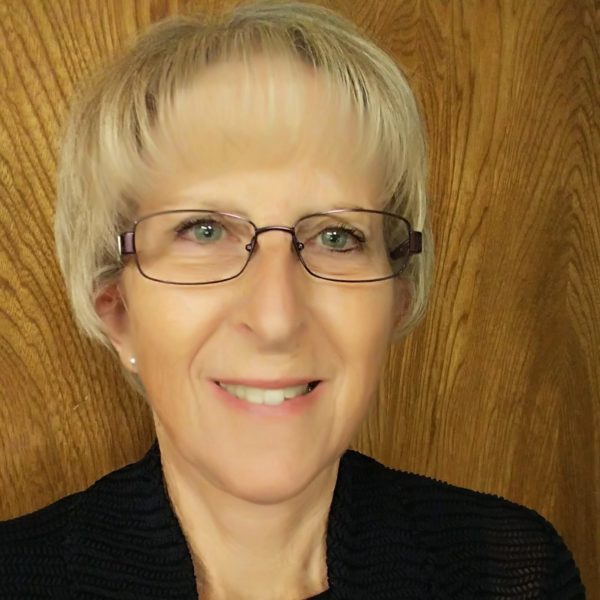
Regina Houcin, a lifelong Kern County Resident, owns and operates a small accounting office in Buttonwillow, CA. While her background is working with small family farms, she currently provides services to 5 community water systems ranging from 46 to 400 connections. Regina has served as a DAC representative to the Kern County IRWM and the Tulare Kern Project Advisory Committee.
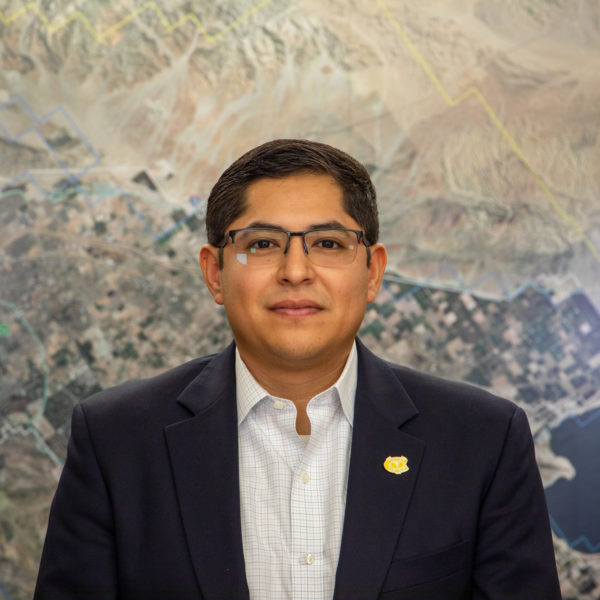
Cástulo R. Estrada, Board Vice President of the Coachella Valley Water District, was elected to a four-year term on the board in 2014 and re-elected in 2018. He is employed as the Utilities Manager at the City of Coachella. He is a native of the Eastern Coachella Valley, a graduate of Coachella Valley High School, and has a civil engineering degree from California State Polytechnic University, Pomona. Cástulo is certified by the state Department of Health as a Water Treatment Operator Grade T2 and Water Distribution Operator Grade D2. He has also served on the Salton Sea Authority Board of Directors since 2014 and currently serves as a member of the State Water Resources Control Board’s SAFER Program Advisory Group.
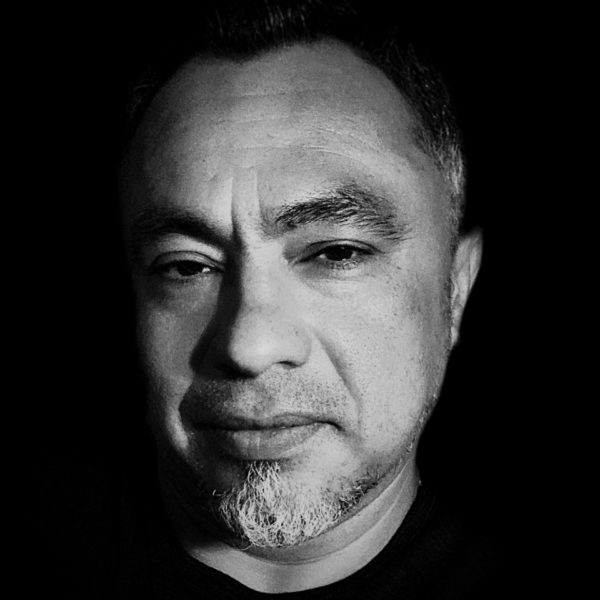
Miguel Luna is sought after and respected locally, regionally, and statewide for his expertise in working with diverse communities on social justice issues and advocacy, and for his ability to utilize community reconnaissance in order to develop and implement effective outreach tools and mechanisms for grass-roots coalition building and consensus. He specializes in cultivating relationships with and between community-based organizations, businesses, elected officials, environmental organizations, academia, governmental agencies, and individual stakeholders at the grass-roots level. Over the last two decades Mr. Luna has worked on issues and projects that have led to the augmentation of urban green space, bringing resources to underserved communities, and master planning projects at the city and county level.
To learn about Zoom, check out our Summit Tech Guidance.
